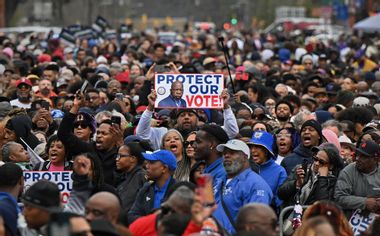Supreme Court Justice Stephen Breyer on Monday issued what appeared to be a dire warning about his right-wing colleagues overturning more precedents in ways that will send shock waves through the American political landscape.
The Supreme Court this week ruled that state governments cannot be subject to lawsuits that were filed in another state’s court, which overturns the precedent set by the 1979 case Nevada v. Hall.
In a stinging dissent from the majority opinion, Breyer called out his colleagues for being all too eager to tear up past precedent — and he warned that such decisions could soon affect even bigger landmark decisions, such as 1972’s Roe v. Wade and 1992’s Planned Parenthood v. Casey.
“The majority has surrendered to the temptation to overrule Hall, even though it is a well reasoned decision that has caused no serious practical problems in the four decades since we decided it,” Breyer wrote. “Today’s decision can only cause one to wonder which cases the Court will overrule next.”
States such as Georgia and Alabama have recently taken to passing restrictive abortion laws in the hopes that they will be challenged in the Supreme Court, thus paving the way for Roe v. Wade to be overturned.







Shares